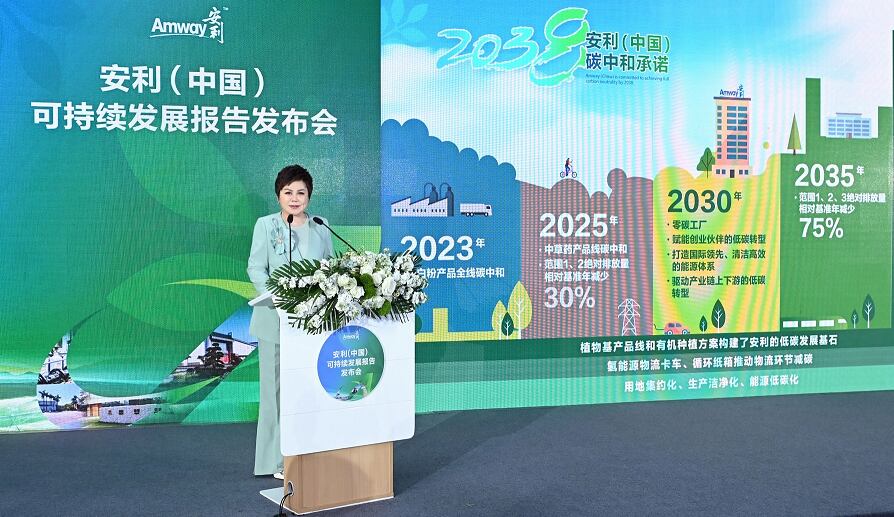The company launched its 2022 Sustainability Report during a company event in Beijing during end May, highlighting plans for reducing carbon emission and improving its formulation for supplements.
One of the goals is for its Nutrilite dietary supplement range to be 100 per cent “pure without additives” by next year. This means that the firm will reduce the use of artificial essences, colouring, and preservatives.
“Based on the foundation of the existing product range, the company will consider both internal and external resources, regulatory requirements, technical capabilities and other factors in adhering to the principle of ‘no adding of any components that are of no benefit or not required by the human body, not using artificial colouring, essence, preservatives, and sweetener, not using genetically modified raw materials,’” said the report.
For instance, it has removed the colouring used in its calcium, magnesium, vitamin D chewable tablets for kids, as well as removing hydrogenated vegetable oil, fructose, and glucose, reducing the use of non-necessary excipients.
The product also does not use synthetic colouring, sweetener, and preservatives, instead, using sugar alcohol to replace glucose, fructose and white sugar used in the formulation, which the firm said was more beneficial for children’s oral health.
Another example is Nutrilite’s dipeptide plant protein powder.
According to the firm, more than 50 per cent of the Nutrilite protein powder consumers are over the age of 40.
To satisfy their need for joint care, the firm has developed dipeptide plant protein powder, which contains plant dipeptide that could help muscle maintenance, as well as hyaluronic acid for aiding joint lubrication.
In the new formulation, the company uses two types of plant peptide raw material sourced from its NutriCert farms. NutriCert is Amway’s exclusive certification program in ensuring that the external farms producing botanicals and plants used in Nutrilite products meet the quality standards for purity, safety, and efficacy as Amway-operated farms.
The firm also claimed that the product contains “five zeros”, meaning zero cholesterol, zero sugar, zero synthetic aromatic component, zero synthetic colouring, and zero preservatives.
As of April, the direct-selling firm, which also runs retail stores, is selling a total of 307 product SKUs.
Carbon neutral goals
Amway China CEO Yu Fang said at the launch of the report that the company, being present in China for 28 years, would hope to contribute to the country’s low carbon and sustainable development.
China president Xi Jinping said in 2020 that the country has pledged to become carbon neutral – striking a balance between emitting carbon and absorbing carbon from the atmosphere – before 2060.
In this case, the firm has aimed for its entire Traditional Chinese Medicine (TCM) based health foods to achieve carbon neutral status, as well as for carbon dioxide release to be reduced by 30 per cent by year 2025 as compared to the year when the firm entered China.
So far, eight protein powder under the Nutrilite brand has achieved carbon neutral status this year.
Last October, JD logistics was also invited to take part in Amway’s sustainability effort. Currently, about 23 per cent of Amway’s orders sent via JD logistics are packed using recycled paper cartons, reducing the use of paper cartons by about 4.2 million.
By year 2030, the firm aims to build Amway’s first global “zero carbon” factory in China and reduce carbon dioxide emission by 75 per cent in year 2035.
By year 2038, the target is to achieve carbon neutrality throughout Amway’s operating chain.


